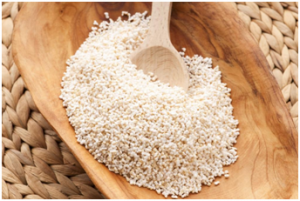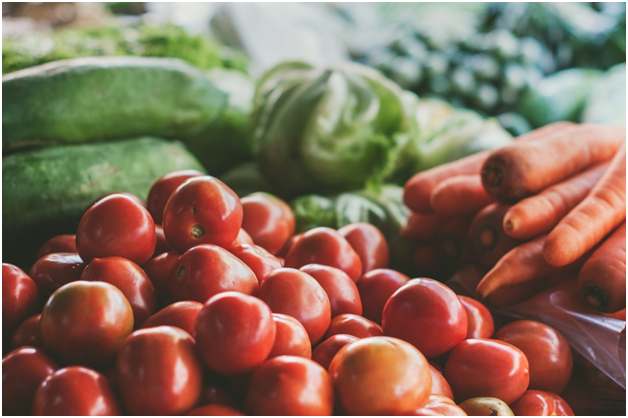5 Tips For Planning And Sticking To A Healthy Diet
July 01 2016
We all know the countless benefits of eating healthy. A well-balanced diet is imperative to losing weight. But that’s not all.
A nutritious diet is the secret to glowing, radiant skin. Not to mention, consuming a balanced diet that is rich in vitamins, minerals and nutrients boosts brain and heart function, and prevents diabetes.
What you eat has a substantial impact on your health. In fact, your food choices can even change your outlook on life. If you want to look and feel good, it’s crucial to adopt a healthy, balanced dietary routine. In other words, focus on fruits and veggies, low-fat dairy, protein, and good fats.
But planning and sticking to a balanced diet is easier said than done. In order to assist you, here are 5 tips you should follow:
Simplify your meals
Don’t obsess over calories at this point. Instead, choose foods and drinks based on freshness and variety. Eating a variety of foods will ensure that you get all nutrients and vitamins. Moreover, it will limit your exposure to harmful substances in a particular food.
Similarly, opt for fresh ingredients. Avoid processed food as they contain toxic ingredients that are detrimental to your health.
 Plan and prepare meals in advance
Plan and prepare meals in advance
Develop a workable game plan. Be realistic. Plan and prepare your meals accordingly.
Take advantage of MealEasy’s eating plans to cook scrumptious, yet wholesome, meals on time and within your budget.
You can use MealEasy’s balanced meal plan to search for recipes, track nutritional values, shop for ingredients and prepare meals based on your individual preferences and health and dietary goals.
Rotate your meals
Alongside meal planning, try to mix up your meals to prevent boredom. Also remember to experiment with a variety of healthy ingredients.
For example, if you want to add greens to your meal, think beyond lettuce or broccoli. There are plenty of other options to choose from, such as Chinese cabbage and Kale.
Aim for balance
Have three healthy meals every day. Healthy snacks are just as important. Remember to have breakfast to boost your metabolism and energy.
In addition, avoid eating at night. Aim to eat dinner early for proper digestion of food. Most importantly, listen to your emotions and body. Be mindful of what you eat; don’t feed your feelings.
Have smaller portions and take time to enjoy your meal. Stop eating when you feel full.
Practice moderation
Last, but not least, eat in moderation. Don’t have too little or too much of a certain food. Even if it’s sweets, have smaller portion to satisfy your craving. Don’t ban any single food.
Follow these simple tips to live a happy, healthy life!
Top 5 Tips For A Gluten-Free Diet
June 29 2016
Do you have gluten sensitivity? You’re not alone. Statistically speaking, nearly 18 million Americans are allergic to gluten. In addition to gluten sensitivity, many individuals have adopted a gluten-free dietary routine because of its health benefits.
Needless to say, a gluten-free diet has become a popular trend today. The demand for gluten-free foods is surging substantially. According to Statista, the market is projected to be valued at $23.9 billion by 2020.
In addition to gluten intolerance, many individuals have adopted a gluten-free dietary routine because of its health benefits.
But is this diet really beneficial? Read on to find out …
What is gluten?
 To put it simply, gluten is a special type of protein that is present in certain grains, wheat, rye and barley. Its main purpose is to keep food elasticity intact during the production phase.
To put it simply, gluten is a special type of protein that is present in certain grains, wheat, rye and barley. Its main purpose is to keep food elasticity intact during the production phase.
Gluten consists of gliadin (a prolam in protein) and gluten in (a glutel in protein). Gluten is harmful for certain individuals due to their body’s inability to digest gluten properly.
Consuming gluten can cause celiac disease. Some symptoms of celiac disease include diarrhea, change in appetite, bloating or gas, nausea, skin rashes, fatigue and much more.
What comprises a gluten-free diet?
A gluten-free diet excludes the protein gluten. You should avoid consuming foods that contain rye, barley, wheat and triticale. Focus on fresh fruits and veggies, beans, low-fat dairy, fresh eggs, lean meat and fish.
That being said, sticking to a gluten-free diet can be extremely frustrating. You need to prepare yourself to achieve successful results.
Here are some effective tips to help you limit or take out gluten from your meals:
Always read food labels
When you shop, check out each food item’s label to assess the ingredients used.
For example, if you want to buy cereal, look for gluten in the list of ingredients.
Some items are labeled gluten-free for your convenience.
Keep yourself informed
Educate yourself in the pros and cons of a gluten-free diet. Start searching for information online.
Plan your meals appropriately
Plan your meals to make your life simpler. Try to keep a stock of ingredients on hand for all three meals – breakfast, lunch and dinner, along with snacks.
As a rule, cook in quantities and store carefully. If you have leftovers, freeze them.
Vary your diet
Add variety to your diet. Mix things up. Otherwise, you may get sick of a gluten-free diet quickly.
Moreover, incorporate an array of gluten-free foods into your diet to obtain essential vitamins and nutrients.
Join MealEasy
Check out the many delicious, healthy gluten-free recipes on MealEasy. With over 900 gluten-free meal ideas, Meal Easy makes gluten-free meals planning simpler and affordable.
5 Commonly Asked Questions About Vegetarian Diet
May 28 2016
Adopting a vegetarian diet has gained much attention in recent years. Whether it is animal welfare or health concerns, an increasing number of Americans are embracing a vegetarian diet. Continue reading
Is Your Diet the Real Risk for Your Heart?
May 26 2016
Heart disease is the most common cause of death in the country today. According to the Center for Disease Control and Prevention, almost 610,000 people die from a heart condition every year. Continue reading
At Risk of Diabetes? Make these Dietary Changes!
May 02 2016
Whether you are at high risk of type 2 diabetes or have been diagnosed with pre-diabetes, prevention is a big challenge. Given the increasing instances of the condition, diabetes prevention should be your top priority, especially when you are at high risk due to being overweight or family history. Continue reading
3 Things You Need to Know Before Going Gluten-Free
April 29 2016
 With 30 percent Americans going gluten-free, more people than ever are now cooking and eating gluten-free foods. The trend is in part due to the rise of gluten-related health concerns, which has caused people to switch to a gluten-free diet to avoid the detrimental effects gluten can cause . Continue reading
With 30 percent Americans going gluten-free, more people than ever are now cooking and eating gluten-free foods. The trend is in part due to the rise of gluten-related health concerns, which has caused people to switch to a gluten-free diet to avoid the detrimental effects gluten can cause . Continue reading
Reasons Why Gluten is Bad for ‘Some’ People
April 14 2016
Excessive amounts of grains is typically considered to have adverse effects on ones health. This is mainly because grains like wheat, rye, and barley contain certain amount of gluten that can potentially be damaging to your health. Continue reading
The Benefits of Being Vegetarian- They Might Make You Go Green!
March 25 2016
Vegetarianism is increasingly replacing traditional eating choices. While some of us seek to live healthier and live longer, others opt for eating choices that preserve the environment. Continue reading
The Top 4 Heart Healthy Foods You Should Include In Your Diet
March 07 2016
In our day-to-day life most of us do not think about our heart health until we experience a problem. Heart disease is the number one cause of death globally. Your heart health to a large degree depends on you and your view on healthy eating. Continue reading
Planning Out Your Vegetarian Meals? Here Are A Few Tips That Make It Easy
March 04 2016
Switching to a vegetarian diet (preferably organic) is the first step to choosing a healthy lifestyle. By including a good mix of healthy vegetables, fruits, whole grains, and legumes to your daily diet, you may considerably reduce your unhealthy weight, while ensuring Continue reading




